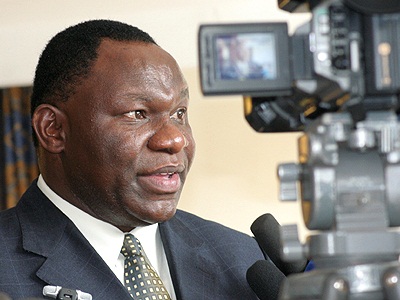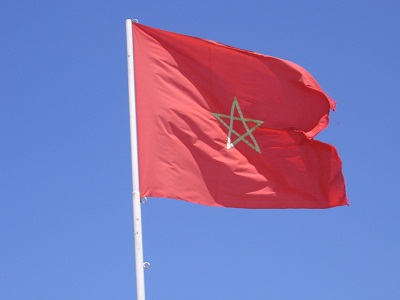
Photo Credit: Zunia
The President of the International Fund for Agricultural Development (IFAD), Mr. Kanayo F. Nwanze, hosted a virtual press conference from his Rome office yesterday, September 29 to discuss why he believes Africa can ensure its own food security through investment in agriculture, with particular focus on West Africa.
The interactive press briefing touched on a number of pressing and interesting issues relating to African agriculture. According to Mr. Nwanze, reducing rural poverty in Africa is a high priority for IFAD, and Sub-Saharan Africa (SSA) remains IFAD’s highest priority, absorbing as much as 40% of new commitments. IFAD investment in Africa and SSA is more than 50% of IFAD’s total investment worldwide. With years of investment and working relations with African experts and governments, IFAD has accumulated a rich experience of what works and doesn’t work in Africa.
The agency has identified with the great challenges facing African agriculture including volatile food prices, changing climate, the challenge of feeding its populace, land grabbing, among others. But at the same time, sees great promise for Africa in the face of all these challenges. Africa has the highest share of the world’s arable land for agriculture, with West Africa alone holding about 284 million hectares of arable land available for investment. Out of this, only 60 million are currently in use. In addition, the region has more than 10 million hectares of land that could be irrigated, but it barely uses 10% of this to its full value. About 60% of Sub-Sahara African is under 25 years of age with high skills and training to be tapped for agricultural growth.
I asked Mr Nwanze what IFAD’s view is on policies that ensure investment in ICTs for agricultural development in Africa. He referenced the on-going Agricultural Knowledge Share Fair (AgShareFair) in Rome with support from IFAD and other UN agencies that brought together people from all over the world including Africa with innovative information and communication technologies for knowledge sharing. IFAD is also supporting many projects in the area of mobile telephony, mobile banking, last mile etc. that are helping in the advancement of agriculture in Africa. Also the use of this virtual press briefing by the President, which made possible for people to participate remotely attests to IFAD’s recognition and commitment to ICTs for development. On policies guiding the creation and administration of Universal Service and Access Funds (USAF) in African countries, Mr. Nwanze recalled a recent meeting by ITU that brought together telecom regulators together to deliberate on its application for development.
Responding to another question from the press as to why Africa is starving, the President stated that Africa is not starving. He cited booming economies in Africa such as Ghana, Rwanda, Tanzania, and Ethiopia where African governments are pursuing sound economic policies thereby enabling the growth of their economies. He cited Ghana as an example that made enormous stride and has great promise for growth with the possibility of transitioning into middle-income country in the near future. He was quick to state, however, that he is ‘no prophet of the future’ to tell how things will turn in these countries. Referring to the crises at the Horn of Africa, the President said agriculture must be made a priority in Africa by all who are interested in reducing poverty and ensuring food security. He called on African leaders to “act now: investing in agriculture is the best way to prevent famines.” African leaders must take the lead and invest in agriculture – no people or nation can make progress with sole external support, the President stated.
On the possibility of investing in green energy for Africa’s agriculture, Mr. Nwanze said it depends on how one defines green energy. According to him, African farmers are already practicing green energy in their farm practices through good soil management practices to prevent erosion and the like.
My main take of the press briefing applies to the question of Mr Nwanze’s view on ICTs investments by African people for agricultural development in Africa. Mr. Nwanze pointed some interesting initiatives by IFAD to expand access to ICTs in rural Africa but it is not clear how much of this is being spearheaded by Africans themselves. On the issue of availability of vast arable lands, huge youth population, and skills in Africa for investment, it is difficult to see how that translate into food security and prevention of future famine in Africa. In this era where Africa is experiencing more and more rural-urban migrations, not only the youth but also the older generations, as a result of declining opportunities and lack of incentives for farming, policies should go beyond mere recognition of ‘rich resources’ on the continent. The President did not mince his words by calling on African leaders to act now, but I also think that there is so much to explore outside African governments and political leaders. The call for investing in low-cost and simple technologies such as information and communication technologies for example should be a fertile ground for Africa’s young entrepreneurs. By creating a conducive environment for investment, Africa could see a wave of young investors especially in the ICTs sector.
Mr. Nwanze also responded to questions from the press covering areas of good governance for agricultural development, south-south collaborations for knowledge transfer to Africa, investment in post-conflict countries such as Liberia, the use of subsidies, and examples of successful models of agricultural development in Africa. The session was covered by over 25 different media outlets across the world in the area of radio, TV, magazine, blogs, multimedia press such as Voice of America, Voice of Nigeria, Deutsche Welle (DW), the Organic Farmer, Think Africa Press, and the Global Broadband for Innovation Program of USAID.







































